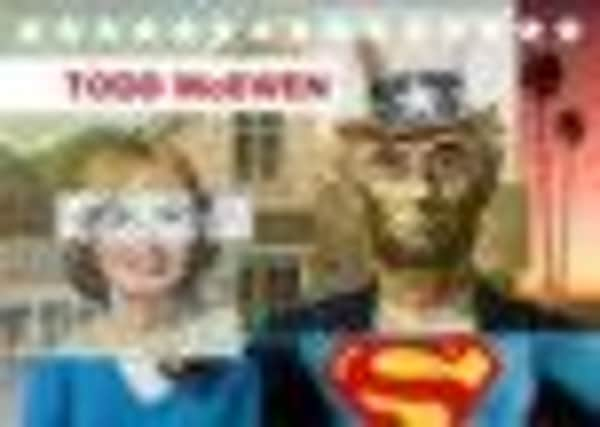Book review: How Not to be an American


How Not To Be American
Todd McEwen
Aurum, 228pp, £8.99
The range of styles McEwen deploys is formidable: he begins with a satirical philippic where he deconstructs the new American uniform of cap, T-shirt, shorts and sneakers and its message of surreptitious infantilism and apathy about capitalism. This is followed by a more elegiac piece “Curse of the Sand People”, which compares the desiccation of northern California with another sartorial trend, the move towards khaki and off-white mousy, preppy clothing. The collection is tightly organised – there are further reference to the Sand People further on.
Some of the pieces are wonderfully surrealistic. There is an inspired compare and contrast between Lenin and Michael Jackson, and a series of cutely dappy imagined films (such as “Civilization And Its Discontents 1940 dir. René Clair. Fred MacMurray, Greta Garbo, Robert Blenchley (as Jung). A timid European doctor is haunted by his own penis”).
Advertisement
Hide AdThere are reference points which form constellations across the essays: Thoreau’s Walden, that hymn to self-sufficiency; Sinclair Lewis’s wonderful demolition of the venal and pusillanimous nature of commercial America, Babbitt. McEwen also discusses in depth two of my favourite films: North By Northwest and Harvey.
In North By Northwest McEwen identifies the real hero of the piece as being Cary Grant’s suit (looping back to the book’s obsession with how we are tailor-made), which retains a level of self-possession despite crop dusters, gunshots, Mickey Finns and scrambling around Mount Rushmore.
McEwen is even better on Harvey. In the film, James Stewart plays the wonderful Elwood P Dowd, an amiable lush who has a 6ft tall invisible rabbit as his best friend.
The film’s key scene has Dowd explaining that “when I was a little boy, my mother used to say to me ‘Elwood’ – she always called me ‘Elwood’ – ‘as you go through life you must be either “oh, so smart” or “or, so pleasant”. For years I was smart. I recommend pleasant. You may quote me.”
McEwen glosses this as “a surprising mid-twentieth-century plea for weirdness, for individuality, for kindness, a vote for a necessary biodiversity of personalities, a society of emotional richness that might have succeeded that of the unsatisfactory, self-satisfied striving and self-strangulation that always defined life in America”.
This is the book’s manifesto and heartfelt yearning.
The anger in How Not To Be American stems from disappointment; that the ideals of the US so infrequently map on to its realities. “When I Become King” distils this into 19 pronouncements, ending with “The Japanese to have the only standing army on the planet, expressly for the defence of the planet. They are armed with beautiful swords.”
Advertisement
Hide AdMcEwen’s work is just such a beautiful sword, incisive and dangerous at the same time. (Among his other regal commandments are “no clothing that says anything” and “to be issued free of charge: transit fares, museum entries, health care, wine, beer, tampons, shaving materials”. It would be difficult to imagine the Tea Party acceding to King McEwen’s commands).
It is difficult to criticise a book for what it is not, but having spent time in McEwen’s company in these pages, I slightly regret that there are no essays dealing with Obama, Sarah Palin, and the state of US politics directly. His bewilderment would be a necessary corrective to the usual platitudes.
Advertisement
Hide AdIf you like The Daily Show or The Colbert Report you will find an ally, a comforter and a co-conspirator in McEwen.
If you don’t like them, you’ll probably never pick this book up and have a deep scepticism about the written word anyway.